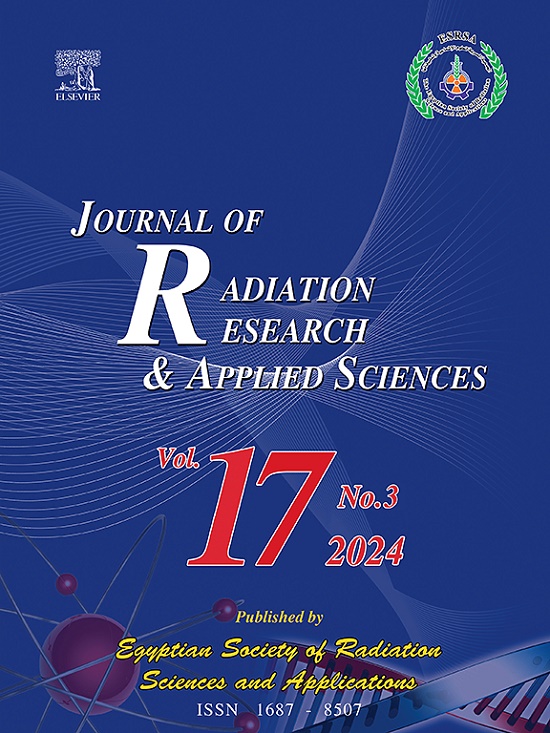机器学习驱动的免疫特征识别用于增强结直肠癌的预后分层和个性化治疗:一种人工智能驱动的多组学方法
IF 2.5
4区 综合性期刊
Q2 MULTIDISCIPLINARY SCIENCES
Journal of Radiation Research and Applied Sciences
Pub Date : 2025-09-07
DOI:10.1016/j.jrras.2025.101933
引用次数: 0
摘要
背景与目的结直肠癌仍然是全球癌症相关死亡的主要原因,复杂的免疫微环境相互作用严重影响患者预后。本研究旨在开发和验证基于免疫相关基因的ai驱动的预后标记,以改善结直肠癌患者的风险分层。方法利用TCGA和GEO数据库的转录组学数据进行综合生物信息学分析,鉴定差异表达基因。通过与已建立的数据库交叉,系统筛选免疫相关基因,然后进行加权基因共表达网络分析(WGCNA)。生物标志物选择采用LASSO回归,预后模型构建采用Cox回归。通过独立数据集进行外部验证,并在临床标本上使用qRT-PCR和免疫组织化学进行实验验证。结果从1531个差异表达基因中,我们鉴定出104个与结直肠癌进展显著相关的免疫相关基因。WGCNA共发现9个共表达模块,其中3个表现出最强的临床相关性。LASSO回归选择了四个关键生物标志物:FABP4、NMB、JAG2和INHBB。人工智能驱动的风险模型成功地将患者分为高风险和低风险组,在训练组(p = 0.026)和验证组(p = 2e-04)中生存结果有显著差异。时间相关的ROC分析显示,生存预测的AUC值超过0.65,具有稳健的预测性能。免疫微环境分析发现M0巨噬细胞与风险特征显著相关。实验证实肿瘤组织中INHBB、JAG2、NMB表达升高,FABP4表达降低。结论基于ai的四基因标记提供了优越的风险分层能力,并为结直肠癌免疫微环境动力学提供了有价值的见解。确定的生物标志物代表了潜在的治疗靶点,有望实现个性化医疗。本文章由计算机程序翻译,如有差异,请以英文原文为准。
Machine learning-driven immune signature identification for enhanced prognostic stratification and personalized therapy in colorectal Cancer: An AI-powered multi-omics approach
Background and objective
Colorectal cancer remains a leading cause of cancer-related mortality worldwide, with complex immune microenvironment interactions critically influencing patient prognosis. This study aimed to develop and validate an AI-powered prognostic signature based on immune-related genes to improve risk stratification in colorectal cancer patients.
Methods
We performed comprehensive bioinformatics analysis using transcriptomic data from TCGA and GEO databases to identify differentially expressed genes. Immune-related genes were systematically screened through intersection with established databases, followed by weighted gene co-expression network analysis (WGCNA). LASSO regression was employed for biomarker selection and Cox regression for prognostic model construction. External validation was performed across independent datasets, with experimental validation using qRT-PCR and immunohistochemistry on clinical specimens.
Results
From 1531 differentially expressed genes, we identified 104 immune-related genes significantly associated with colorectal cancer progression. WGCNA revealed nine co-expression modules, with three showing strongest clinical correlations. LASSO regression selected four key biomarkers: FABP4, NMB, JAG2, and INHBB. The AI-powered risk model successfully stratified patients into high-risk and low-risk groups with significantly different survival outcomes in training (p = 0.026) and validation cohorts (p = 2e-04). Time-dependent ROC analysis demonstrated robust predictive performance with AUC values exceeding 0.65 for survival predictions. Immune microenvironment analysis identified M0 macrophages as significantly correlated with risk signature. Experimental validation confirmed elevated INHBB, JAG2, and NMB expression and decreased FABP4 expression in tumor tissues.
Conclusions
Our AI-powered four-gene signature provides superior risk stratification capabilities and offers valuable insights into immune microenvironment dynamics in colorectal cancer. The identified biomarkers represent potential therapeutic targets with promise for personalized medicine implementation.
求助全文
通过发布文献求助,成功后即可免费获取论文全文。
去求助
来源期刊

Journal of Radiation Research and Applied Sciences
MULTIDISCIPLINARY SCIENCES-
自引率
5.90%
发文量
130
审稿时长
16 weeks
期刊介绍:
Journal of Radiation Research and Applied Sciences provides a high quality medium for the publication of substantial, original and scientific and technological papers on the development and applications of nuclear, radiation and isotopes in biology, medicine, drugs, biochemistry, microbiology, agriculture, entomology, food technology, chemistry, physics, solid states, engineering, environmental and applied sciences.
 求助内容:
求助内容: 应助结果提醒方式:
应助结果提醒方式:


